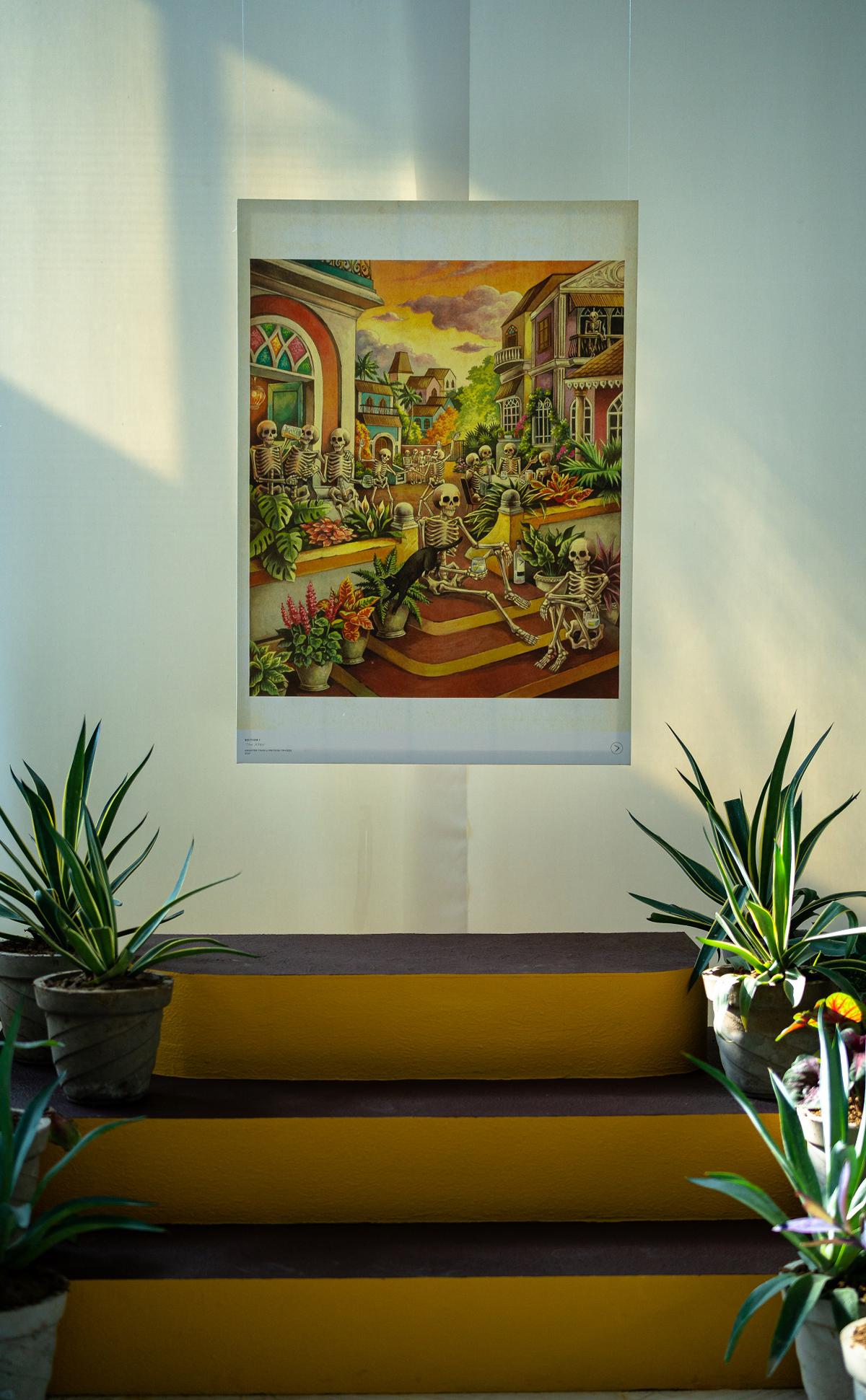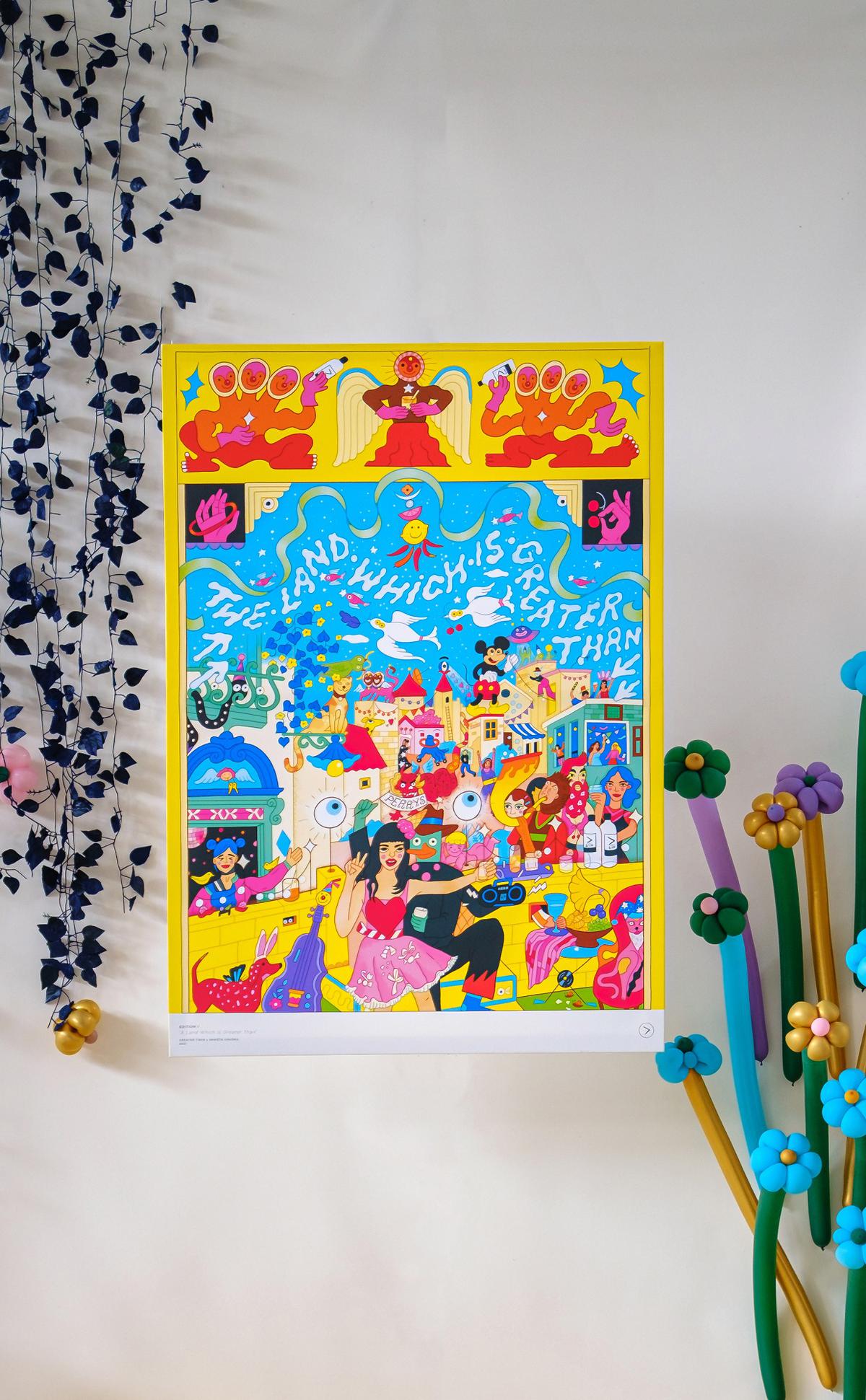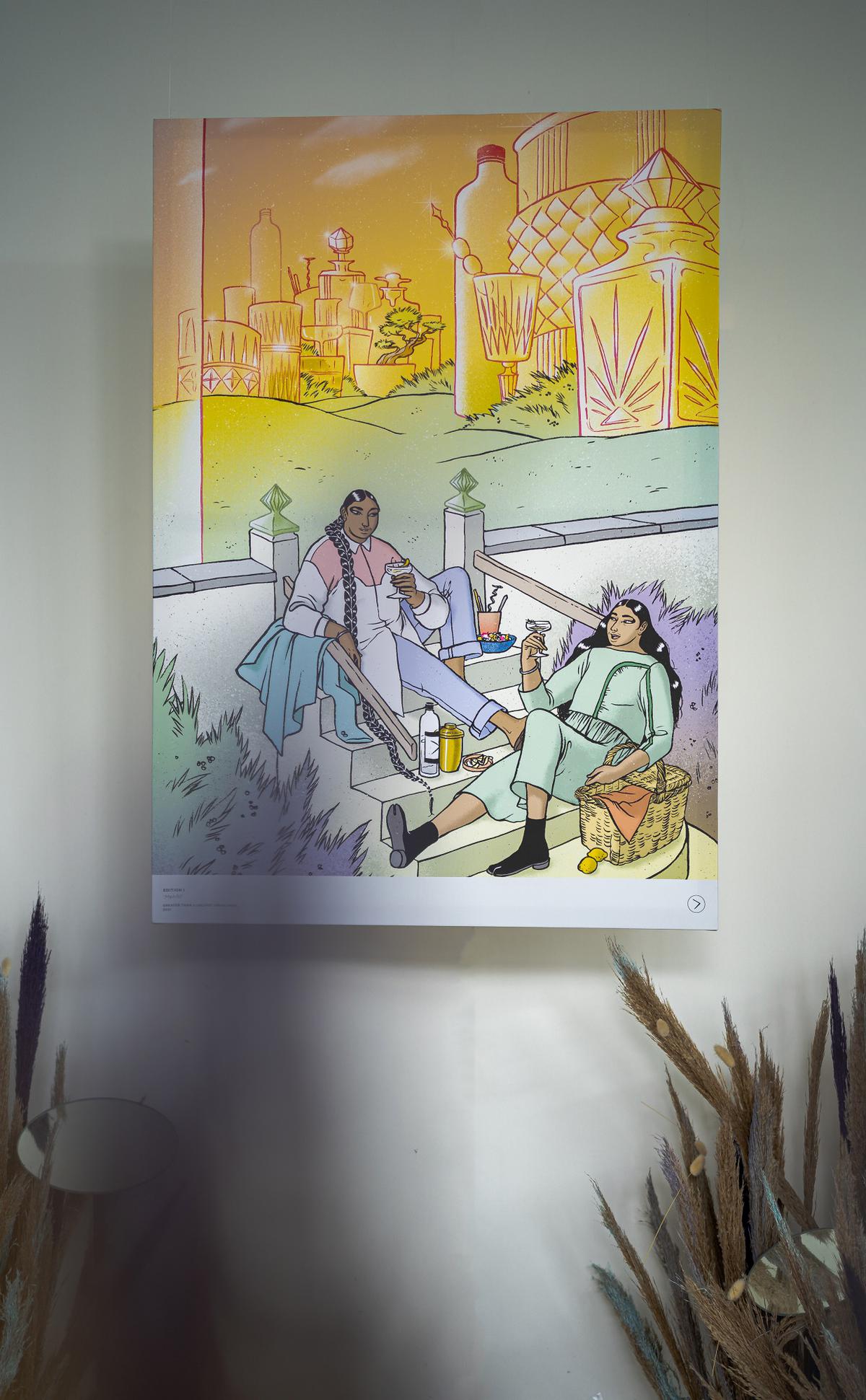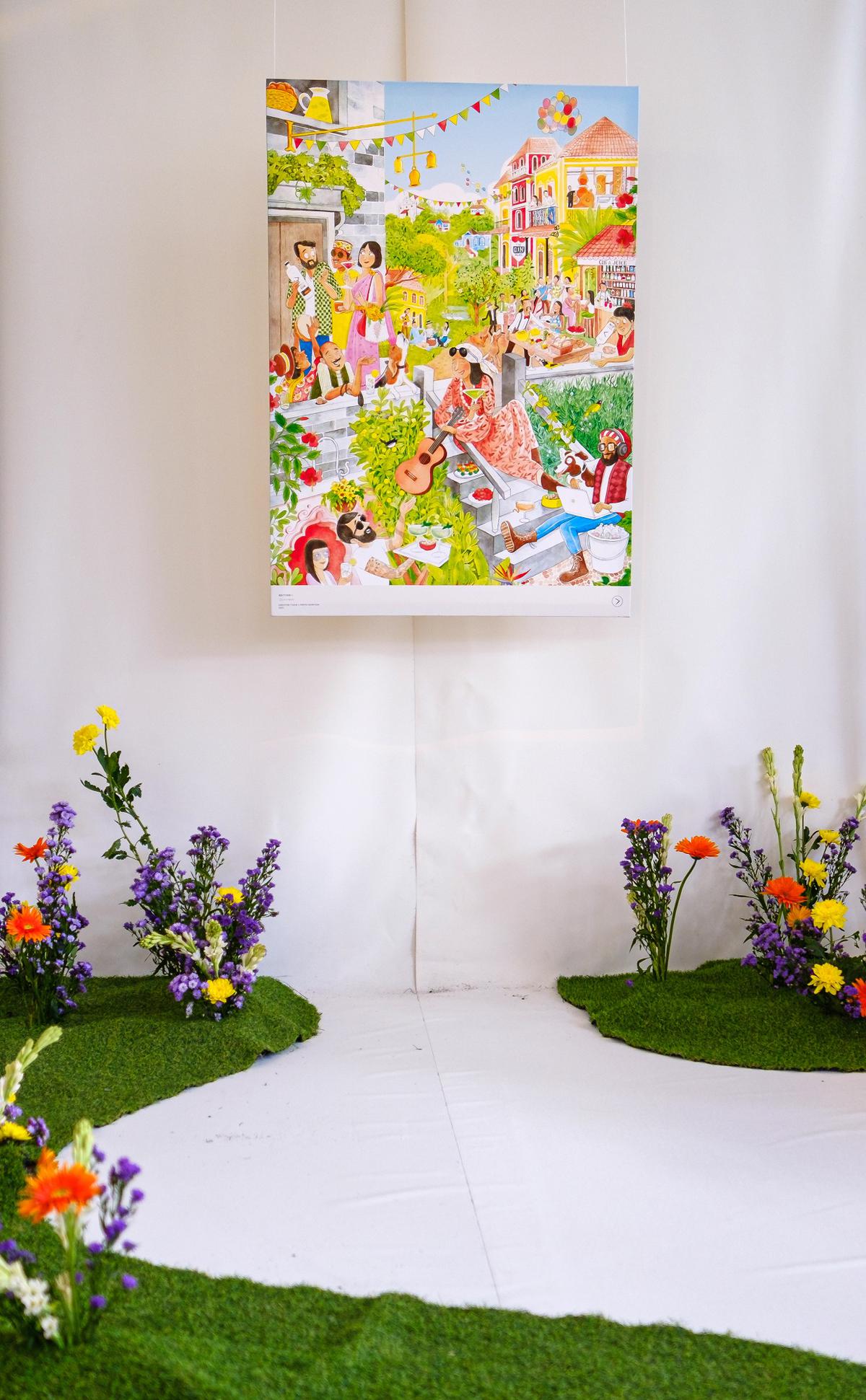Five artists reinterpreted William Hogarth’s 1751 painting to give a fresh take on gin
Five artists reinterpreted William Hogarth’s 1751 painting to give a fresh take on gin
Back in 1751, English artist William Hogarth published twin prints, Gin Lane and Beer Street, to depict the ‘evils’ of gin drinking compared to the benefits of beer.
Cut to 2022. the Indian gin brand Greater Than launched Greater Lane, a special project inspired by William Hogarth’s paintings Beer Street and Gin Lane. The project involved five artists with distinctive styles giving their modern interpretations of Hogarth’s Gin Lane .
The paintings by William Hogarth depicted the evils of the consumption of gin in contrast to the merits of drinking beer, as many were unaware at the time. While Beer Street was shown thriving in good spirits and abundance, Gin Lane was populated by death, despair, and madness to encourage the English to denounce gin (believed to be the sole cause of immorality in society). These artworks were part reality and part propaganda.
Aparajita Ninan from Greater Than explains: “In 2022, the reality of gin has changed drastically. It’s about time the most popular depiction of it changed as well. With that in mind, the brand launched Greater Lane by Greater Than.” Aparajita says, “Gin Lane was a propaganda piece. With no other representation of gin at that time, it met the purpose. ”
So how did Greater Than choose artists like Bob & Bobby, Jasjyot Singh Hans, Priya Kuriyan, Priyesh Trivedi and Shweta Sharma? Aparajita says, “We looked at artists who are popular and focussed on works of social commentary. As a result the outcome was beautiful. Most of the artists decided to focus on life and society, some on a private moments.”
The artists explain:
Bob & Bobby: The original ‘Gin Lane’ was made to turn the crowd against gin, by showing chaos and violence . So, we tried to turn it around by keeping celebration, love and acceptance at the core of it. Our artwork is pro-love and pro-diversity, where people choose love over hate, have won and are celebrating with their favourite drink. The most exciting part was layering a lot of messages subtly and the opportunity of adapting an artwork that was made more than 200 years ago.”
Jasjyot Singh Hans: ‘Mehfil’ is a reimagining of Hogarth’s original in a calmer, clearer context; the focus is on the novelty of an intimate moment. Here, laughter echoes in a crystal clear surreal landscape, as two friends share a drink over sweet nothings!
Priya Kuriyan: At first glance, Gin Lane almost looks as though everyone is stricken by a pandemic, which is ironic because while working on this, we were amid a pandemic ourselves. But what I love about the image is that each time one looks at it, one notices something new. And so I wanted to create a Gin Lane that was reminiscent of this aspect of the original etching, yet totally in contrast to it. So I think that’s how I went on to create an image that was sort of joyous, intimate and filled with things that were missed. Spontaneous meetings, chance encounters, happy gatherings.

Priyesh Trivedi’s painting
| Photo Credit: Special arrangement
Priyesh Trivedi: When I first saw the original work by William Hogarth, it just seemed to be like a parody of itself, like he was trying too hard to show the ills of drinking gin . The most exciting part about working on this project and my interpretation of Gin Lane was that it’s very much in tune with my practice, where I work a lot with vintage imagery and archival material, and I recontextualise it to make it darker or more subversive, more tongue-in-cheek. And also it’s such a complex scene to work on because a lot is going on and you have to make sure that it’s obvious, like where it’s coming from, and it also has your sense of artistic individuality in it. To tie everything together and make it into a proper, cohesive work of art, I think that was fun to work on and explore.

Shweta Sharma
| Photo Credit: Special arrangement
Shweta Sharma: My base vision for reinterpretation was to create a world which wasn’t defined by a single skin, or a dominant species. I wanted this world to be inclusive in a deconstructed ecosystem of sorts, where common connotations change and everyone’s allowed to dream and have fun. And it’s also very funny when I say that, though, because it felt like I was dreamscaping while making this as well. So there’s a literal dream section; There are humans, there are demi-humans, animals and birds that exist and animals and birds that don’t exist. But I’d very much like to see characters from my favourite movie series and cartoons, or in an unexpected but blissful setting where anything is possible.


























